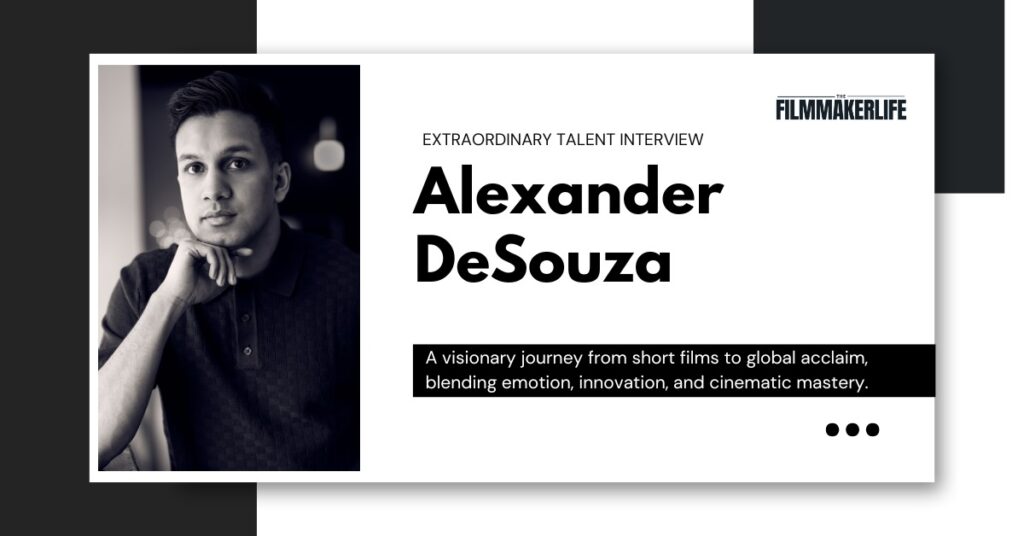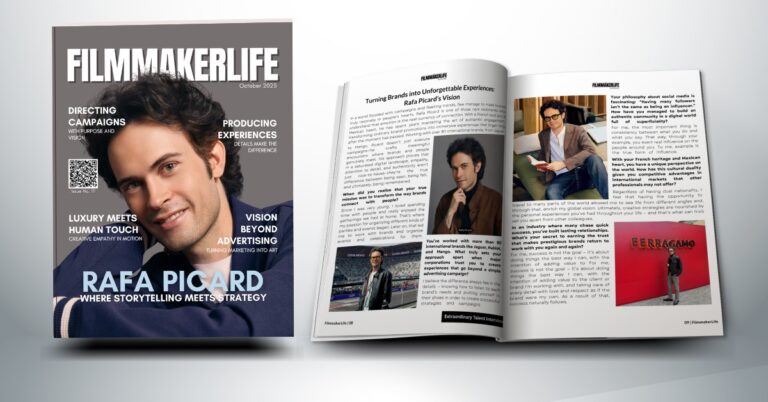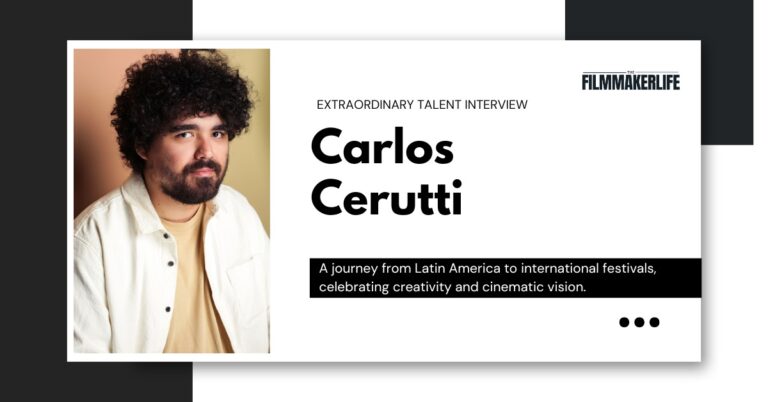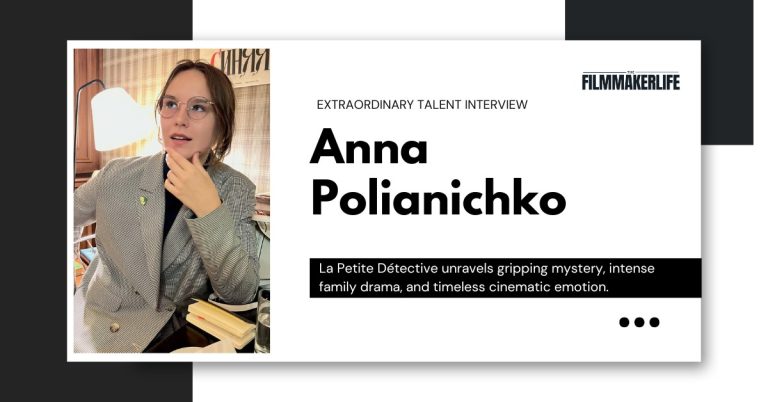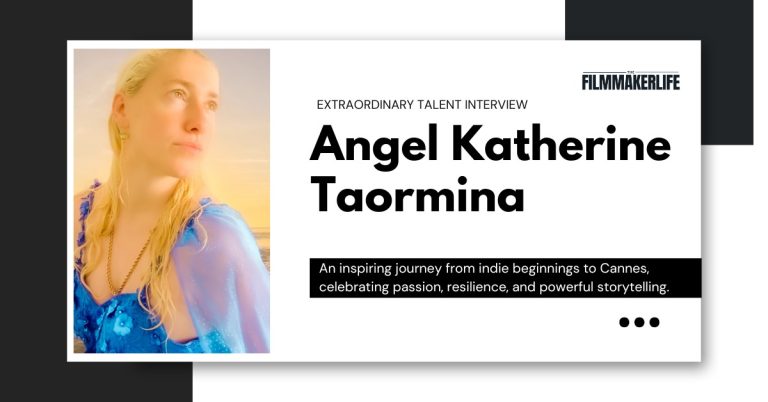From crafting heartfelt short films to building immersive worlds that blend emotion and technology, Alexander DeSouza has steadily carved his name in both the Canadian and international film scenes. His storytelling—intimate yet ambitious—explores the space where humanity meets innovation. With HOLO premiering on the festival circuit and a feature debut on the horizon, DeSouza continues to redefine how stories are told and experienced.
In this exclusive interview, we talk with Alexander about his evolution as a filmmaker, the philosophy behind his process, and the creative endurance that keeps him grounded through every challenge.
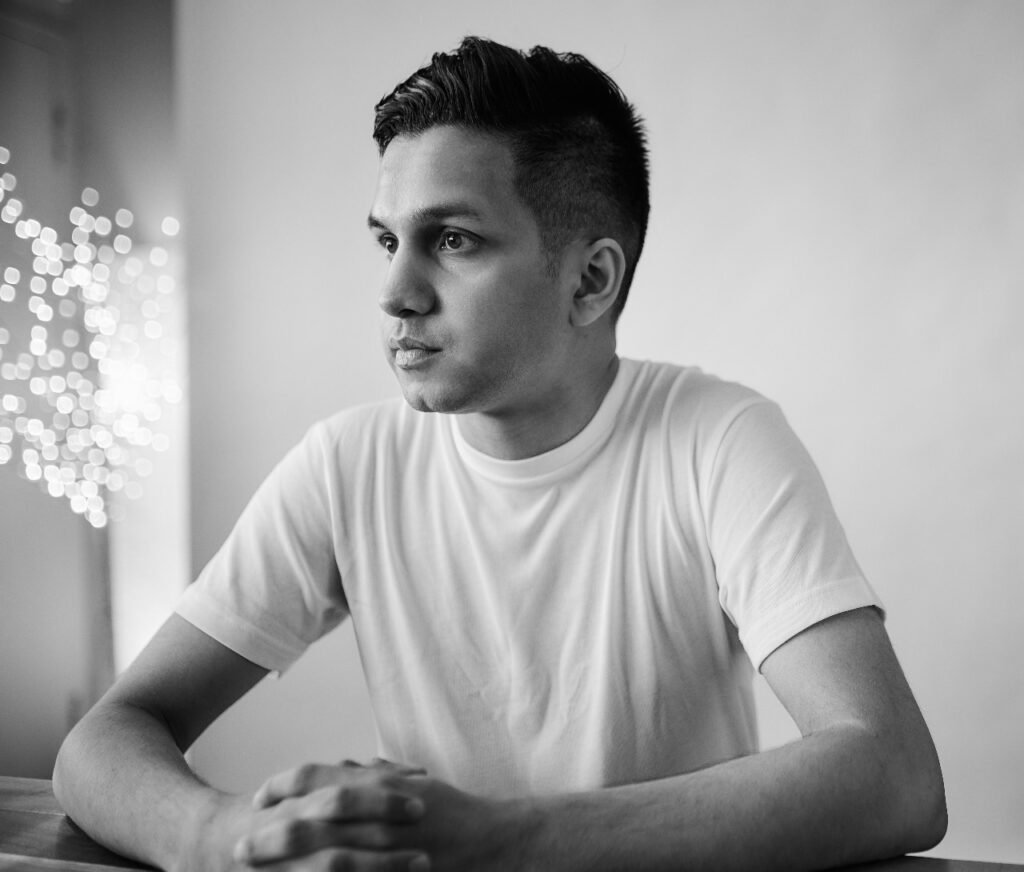
Alexander DeSouza
Alexander, your career has evolved beautifully—from intimate short films like Mother’s Day to the futuristic world of HOLO. Looking back, how do you feel your storytelling voice has matured over time?
I think my storytelling voice has matured over the years mainly as a result of the many life experiences that I’ve had. When I was starting out as a filmmaker, a lot of the stories that I chose to tell mainly involved helping to bring someone else’s stories to the screen. I should state that by someone else, I’m referring to ideas that were often written by other writers for scripts that I chose to direct or had an interest in. One of the ways that my storytelling voice has matured in recent years is that I’ve begun to dive deeper into my own personal roots and family history. In doing so I’ve really started to hone in on what makes my storytelling voice unique. Nowadays, while I’m concerned about the commercial viability of a project, I’m also thinking about the social impact my films will have on the world and I think that has been a result of my filmmaking voice having matured over time. I am no longer scared to stick to one genre or format. If a story is good and resonates with me, I will do my best to produce and direct it.
You’ve balanced directing, writing, and editing throughout your journey. How do these roles inform one another, and do you find that wearing multiple hats helps you connect more deeply with your stories?
So I haven’t written too many projects, my main focus has actually been directing and editing. My career actually started as an assistant editor intern while attending film school in Canada so my beginnings in the industry really began as an editor. I have been lucky enough to have worked in both documentaries and narratives as an editor so I’ve been able to see in an intimate setting how stories are crafted in the cutting room, what gets ultimately chosen and what ends up on the floor. Thinking about it now, my work as a director and editor ultimately both influence each other – it really does go both ways. For all the films that I direct, I actually approach those films in the eyes of an editor which has helped me to be precise and detailed in my overall vision. For films that I only edit, having the mindset of a director has helped me to think like a director and to serve another creative’s vision. Directing and editing a film is like re-writing a film twice so having experience in both roles has been very helpful for me. I do agree that wearing multiple hats allows me to connect more deeply with my stories. However that being said, I do agree that focusing on one craft at a time is usually best and is often why I don’t choose to edit all the films that I direct. This allows me to get a fresh perspective on my stories from someone else.
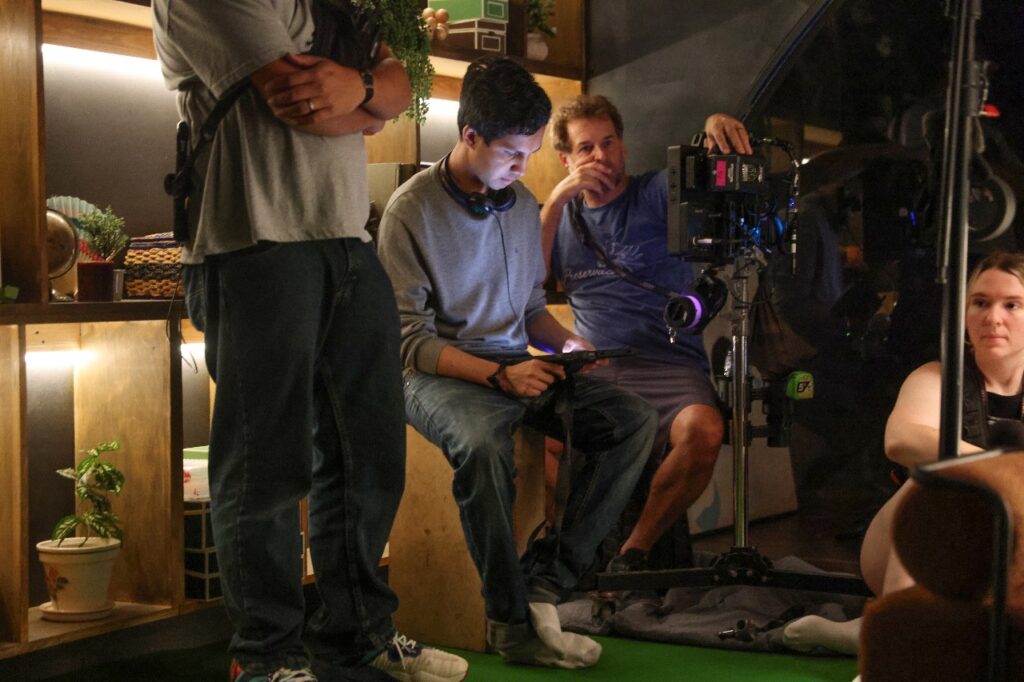
Your short HOLO explores technology’s role in emotional closure, raising profound ethical questions. What kind of emotions or conversations do you hope audiences carry with them after watching it?
I don’t think it’s a secret that we are definitely living in a time where HOLO is quite relevant. For me it’s all about the conversations surrounding the ethics of such technologies existing in our society that I’d like people to start having. I have to be upfront that within the world of HOLO, there is no use of AI so what HOLO presents to viewers is this deep trust and mis-use of advanced technologies and the complications or benefits it can bring to people. The question that I’d ask audiences is at what point do we put complete faith in such technologies and at what point is it dangerous? Have we gone so far down the rabbit hole where we are now too dependent on technology that we need to rely on it to survive? There are no current answers to these questions I think, but in making films like HOLO I hope to raise awareness on such themes and at least start a conversation.
Working with actors like Shane West, Morgan Kohan, and Zelda Williams must have been a special experience. What did each bring to the project that surprised or inspired you the most?
All three actors were incredible to work with and greatly elevated Holo. I think Shane, Morgan and Zelda all came to the project with a deep understanding of their characters which made the conversation for me as a director a lot of fun in being able to dive even deeper into their characters. Morgan came to the project with an exceptional understanding of the psychology of the lead character in the film, Claire, which I found inspiring. Shane and Zelda are both good friends in real life, so being able to have them as actors portray Jared and Grey where one character is imitating another also took me by surprise in how well they were able to accomplish that. Overall, I genuinely couldn’t have asked for a better cast.
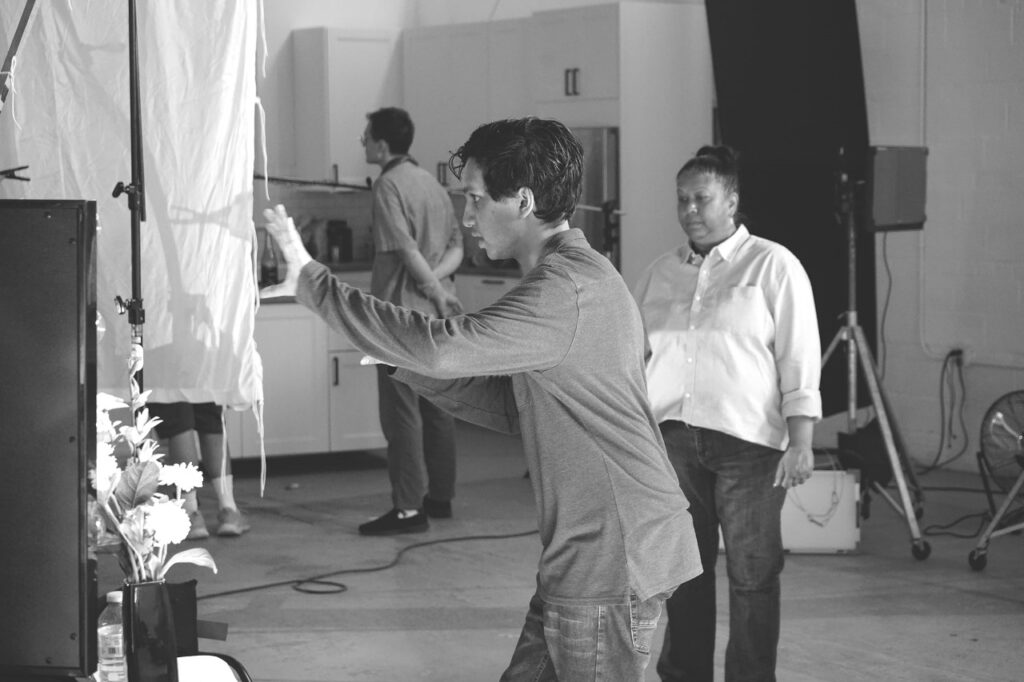
You’ve mentioned endurance as one of the most valuable lessons in filmmaking. Can you share a moment in your career where persistence truly paid off?
I was recently given the chance to make my television editing debut on an upcoming teen drama series for an international streaming service and network. I sadly cannot name the show or more details about it as I’m currently working on it, but being able to make my debut as an editor has truly been years in the making. For many years I’ve worked as an assistant editor training and learning from some of the best editors in the business and although I’ve asked or tried to push to get an episode to edit, there have been many false starts or circumstances that haven’t allowed me to edit. Some assistant editors can go years without editing and so by having the endurance that I did, I eventually was able to reach the point in my career where I could jump into television editing. I am a firm believer that you can have all the talent and ambition in the world, but without constant persistence you won’t get far or to your end goal.
As a co-founder of The Wonderlight Company, how do you balance your creative ambitions with the practical realities of running a media enterprise?
The Wonderlight Company is a brand new Canadian film and television production company that was founded by my younger brother and I. My brother Jacob, who actually works in the industry as a producer handles all of the production and business operations of the company while I lead the overall creative development of our slate of projects. At the end of the day however, business is business, so as co-business owners we both try our best to develop and work on projects that have the most commercial potential while also at the same time produce projects that we think are important for the world to see.
You’re soon stepping into feature territory with a story rooted in your family’s history in Uganda. How does it feel to explore something so personal on such a grand scale?
It’s a bit scary but also quite exciting at the same time. For years as a director I’ve been scared to tell my own personal stories, especially those surrounding my family’s up-bringing and history. I think directing other stories and scripts of the last several years have really helped develop my point of view as a filmmaker and also helped me to build up the confidence and courage that I ultimately needed to start telling my own personal stories and also to move from shorts to feature filmmaking.
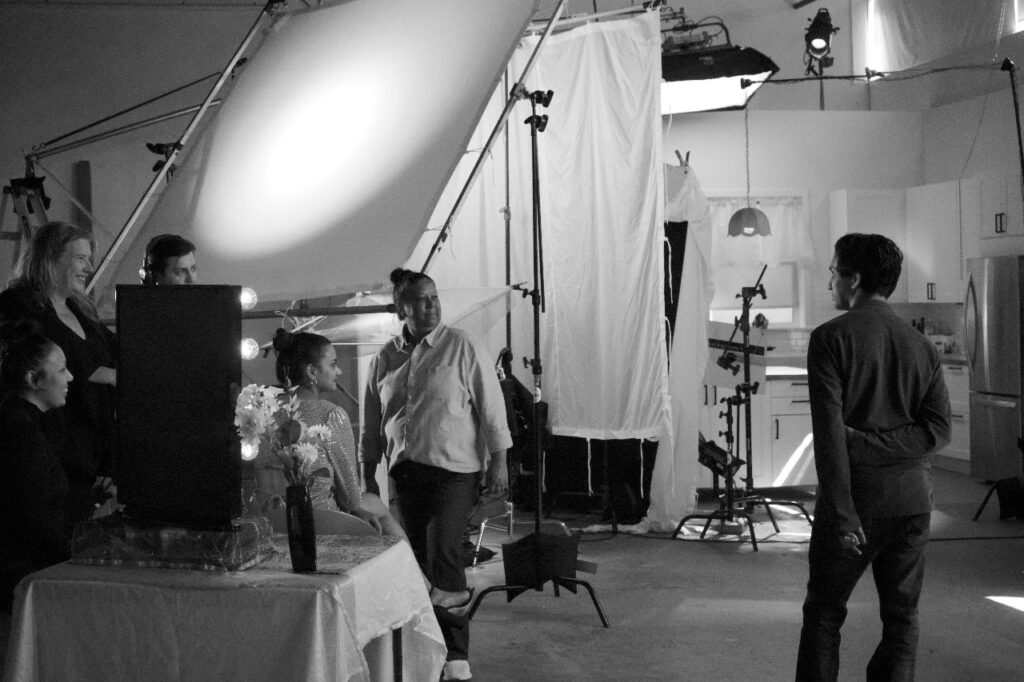
Having worked with both independent projects and network productions like The Next Step: Cheer, what differences do you find most striking between indie filmmaking and television work?
I think one of the main differences between both indie filmmaking and network television are the way content in both formats are crafted. In indie filmmaking, being the director on those projects has allowed me to have full creative freedom in fulfilling my vision. This is contrasted in television where working as a director or editor is a little bit different in the sense that you are there to offer your expertise as a creative and to serve the shows overall tone and vision set out by the showrunner. So in essence, the biggest difference is the amount of creative input you have in either format. However at the end of the day, good storytelling is good storytelling so no matter whether you make independent projects or work on large scale network television productions, all creative choices must serve the story.
As someone who’s been both a film editor and a director, how do you know when a story is truly finished—or do you believe a film ever really is?
This is such a great question. To be honest, I don’t think any story is ever finished. Whenever I watch a project back that I’ve either directed or edited, my mind always continues to race with new ideas or things we could have done differently, or added or changed. I’m a believer that a film or story is never finished, but at some point is only abandoned once it’s in a place to be shown to the world. Lately I’ve also been viewing films as ways to impact societies and to bring about important conversation and change. In that context, the story of a given film can continue to adapt and grow over time even after a director or editor has finished on the story.
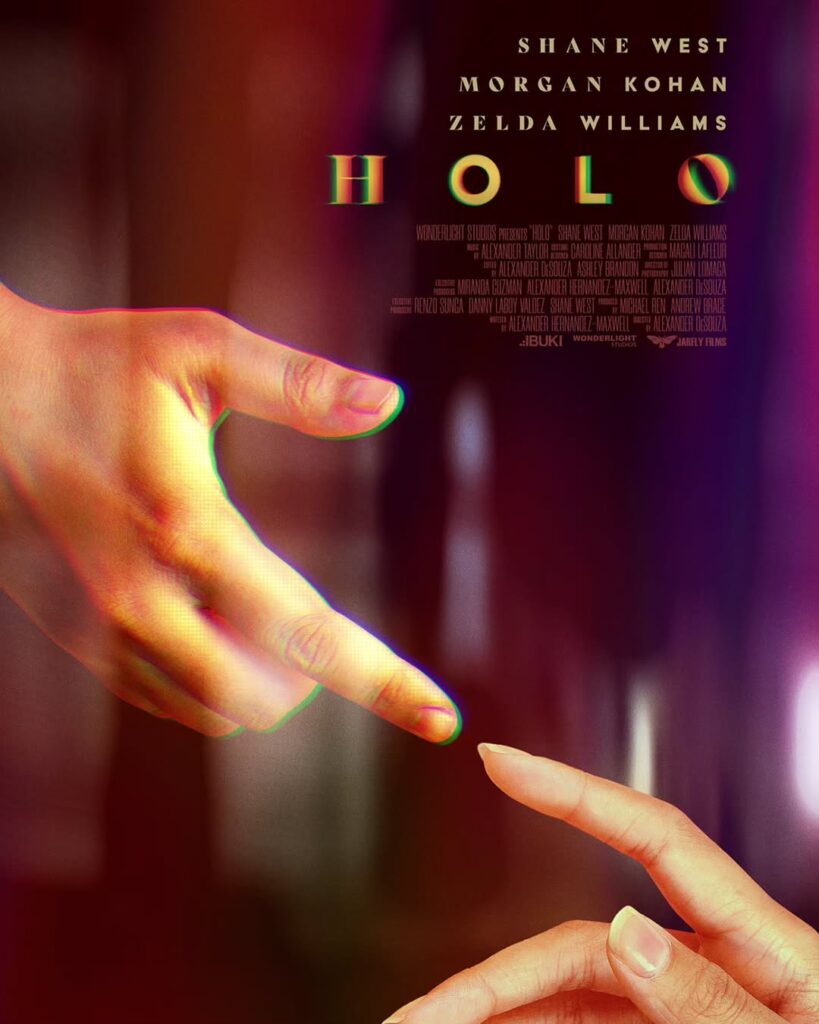
Alexander DeSouza’s path is a testament to how dedication and imagination can turn vision into reality. As he prepares for new milestones—from HOLO’s continued success to his awaited feature debut—his work reminds us that cinema remains one of the most powerful mirrors of the human experience.

